In Hong Kong, the regulatory framework requires each listed company to have a minimum of three independent non-executive directors (“INED(s)”) on its board of directors (the “Board”), who should collectively represent at least one-third of the Board.
On 17 November 2023, The Stock Exchange of Hong Kong Limited (the “Stock Exchange”) published a new guide for INEDs – A Snapshot of INEDs’ Roles and Responsibilities (the “INED Guide”). It outlines several essential qualities and responsibilities expected of an INED:
- Being proactive and ask questions
- Providing independent judgement and expertise
- Analysing and addressing risk
- Assessing internal controls and Listing Rule implications
- Following up on any red flags
- Requesting sufficient information
- Devoting sufficient time and attention to the Company
- Regularly attending relevant training
- Keeping important records circulated and produced during the course of appointment
Guide to INEDs in different circumstances
The role of an INED is multifaceted, involving a broad spectrum of responsibilities. While the INED Guide is not exhaustive, it highlights some essential actions expected to be taken by an INED in most cases.
A. Review and approval of business decisions and transactions
During the operation of a company’s business, there are various decisions and transactions that need to be considered and approved by the Board. INEDs should first ensure there is sufficient information to make informed decisions and should ask questions such as:
- “Is it in the interest of the company?”
- “Has sufficient due diligence been conducted?”
- “What are the Listing Rule implications and compliance?”
- “Is it in proper compliance with internal procedures?”
- “Have the risks been analysed and addressed?”
- “Has there been a consultation with professional advisers?”
B. Internal controls
A core part of an INED’s role is to oversee the establishment, implementation, and effectiveness of the company’s internal controls and risk management systems. This involves an active role in designing, implementing, reviewing and monitoring the effectiveness of the company’s internal procedures. Where internal control deficiencies are identified, INEDs should take active steps to ensure that they are properly addressed and rectified.
C. Financial reporting
In terms of financial reporting, INEDs should pay attention to possible red flags, proactively raise enquiries, and be wary of unusual patterns of transactions, significant expenses or outflow of money. INEDs should also take proactive steps to obtain the company’s financial statements and ensure that they reflect a true and fair view of the state of affairs of the company.
D. Incident management
Upon discovery of any red flags, non-compliances and/or other issues, INEDs should promptly review and discuss them among the Board and take appropriate action to investigate and address the issues, rectify or remedy the breaches, reassess any internal controls and take measures to prevent future breaches. INEDs should apply independent judgement to incident assessment, and when the Stock Exchange makes enquiries of the company, INEDs should take steps to follow up and ensure that the company accurately responds to the enquiries in a timely manner.
Recent enforcement actions
As a member of the Board, INEDs are required to comply with relevant rules, which include fulfilling fiduciary duties and duties of skill, care and diligence to a standard at least commensurate with the standard established by Hong Kong law. Some recent enforcement actions taken on INEDs by the Stock Exchange include:
- In May 2023, the Stock Exchange publicly censured two INEDs and one former INED of KEYNE LTD (formerly known as Nine Express Limited) for failing to take sufficient steps to address the internal control deficiencies that were identified by the Company’s internal controls department, and for failing to review the relevant announcement before it was issued, which resulted in breaches of the Listing Rules on notifiable transactions, connected transactions and disclosure of information. The said individuals were directed to each attend 26 hours of training on regulatory and legal topics including compliance with the Listing Rules.
- In June 2023, the Stock Exchange publicly censured and imposed a director unsuitability statement* against each of the two former INEDs of China Clean Energy Technology Group Limited for failing to take proactive action to follow up on the matter after receiving a written requisition on the Board to request an EGM be convened. It was found that the INEDs failed in providing checks and balance to the executive management of the Company. It was also found that the said INEDs placed their own interest ahead of the Company’s interests by improperly resisting the shareholders’ votes to remove them from office.
- In October 2023, the Stock Exchange publicly criticised two INEDs and two former INEDs of China Fortune Holdings Limited for failing to take active remedial actions to improve inadequacies in the Company’s internal controls after the Stock Exchange issued a written warning. The Stock Exchange also found that the INEDs failed to discharge their duties in relation to the review and monitoring of the training and continuous professional development of directors and senior management of the company. The said individuals were directed to each attend 18 to 24 hours of training on regulatory and legal topics, including Listing Rules compliance.
Conclusion
While INEDs are not expected to be involved in the day-to-day running of the business, they should nonetheless take proactive steps and devote sufficient time to oversee the company’s risk management and internal controls. The INED Guide serves as a valuable resource, emphasising the importance of INEDs and offering direction in enhancing corporate governance standards for Hong Kong’s listed companies.
Should you require any assistance or advice in relation to the above, we are happy to provide you with a consultation.
* A director unsuitability statement is a statement that, in the Stock Exchange’s opinion, the said individual is unsuitable to occupy a position as director or within senior management of the Company or any of its subsidiaries.


